The Hebrew calendar contains not one, but four new year celebrations. The one most familiar to us, kicking off the Days of Awe, is Rosh Hashanah. Tu B’Shevat, the New Year of the Trees, is much like a “Jewish Earth Day” and falls in January-February. It is observed at Coastal Roots Farm with a celebration in the Food Forest and opportunities to learn by planting and caring for trees. The New Year of Kings, though seldom celebrated, is the first day of the month of Nisan, when Passover takes place. It marks the formation of the Jewish people as a nation through the liberation of the Israelites from Egypt. A fourth New Year of the Hebrew calendar is one that has been steadily gaining recognition in recent years. This is Rosh Hashanah La’Behemot, the New Year for Domesticated Animals.
Rosh Hashanah La’Behemot is a day to reflect on our direct and indirect relationships with domesticated animals, recognize our personal responsibilities to them, and improve those relationships to the best of our capabilities. This holiday calls on us to account for the living beings that both depend on humans for survival and are necessary to support human lifestyles.
The category of behemah (domesticated animal) includes all animals, both kosher and non-kosher, historically bred and domesticated by humans. This can include pets, livestock, and animals who work beside us.
Jewish tradition has long recognized that we have special responsibilities to the animals that were domesticated by our ancestors long ago. Jewish texts instruct us to allow animals the same Shabbat as humans, even feeding them their Shabbat dinner before we sit down to eat ours. It is also encouraged that working animals at harvest time should be unmuzzled so they can eat of the harvest as they work – allowing them to quite literally enjoy the fruits of their labor.
“The treatment of animals is important within Jewish tradition not only because animals are sentient, living beings with whom we partner to grow and harvest our food and domesticate our land, but because, in the end, the treatment of everything matters,” says Cantor Rebecca Joy Fletcher, Director of Jewish Life at Coastal Roots Farm. “Judaism teaches us to relate to all living beings with compassion, justice, and respect – from the most marginalized person to the quietest animal to the smallest tree.
In ancient times, the great Jewish prophets Moses and David were both shepherds who were deemed suitable leaders because of how compassionately they cared for their sheep.
Jewish tradition bestows us with several mitzvot (good deeds) that guide our treatment of animals.
Tza’ar Ba’alei Chayim
The mitzvah of avoiding tza’ar ba’alei chayim (“suffering of living creatures”) discourages us from causing animals any unnecessary harm. In industrialized societies, it can be common for farm animals to be treated as units of production, often being housed in poor conditions. As a Jewish farm, Coastal Roots Farm prioritizes the wellbeing of the livestock in their care.
“Tza’ar ba’alei chayim guides our decision-making around how we house and care for our chickens,” says Ellie Honan, Farm Production Manager of Coastal Roots Farm. The Farm, which provides organic produce and eggs to local communities facing food insecurity, currently houses around 150 chickens on property. “Something interesting that we had the opportunity to do as a Jewish farm was to partner with the Jewish Initiative for Animals. They helped us with design ideas that meet the highest animal welfare standards.” Honan details the specific outcomes of this collaboration. “We’ve built our coops extra-large to give the chickens enough space; we rotate them through our fields, giving them access to fresh vegetables and ensuring that they don’t stay in the same space for too long, which can be unhealthy as manure builds up; and we supplement their feed with a corn-free, soy-free, organic, non-GMO grain mix.”
The mitzvah of tza’ar ba’alei chayim is a reminder that animals, like humans, are sentient beings that deserve to live happily and comfortably during their time on Earth.
Bal Tashchit
The mitzvah of bal tashchit (“do not destroy”) dissuades us from destroying or killing needlessly and in a wasteful manner. Not only might this apply to hunting for sport, but also to the overproduction of meat and animal biproducts that lead to food waste. According to the USDA, Americans throw out nearly 26 percent of meat, poultry, and fish at the retail and consumer levels. It is calculated that American farms are annually slaughtering about a billion chickens, more than 100 million other land animals, 25 billion fish, and 15 billion shellfish, only to have them go unconsumed and wind up in a landfill.
The mitzvah of bal tashchit gives us the opportunity to respect the lives of domesticated animals by being more conscious about our choices as consumers, encouraging us to take no more than we need and to use what we have.
Chesed
The Jewish value of chesed (“lovingkindness”) can inform our relationships with companion animals who live in shelters and as strays. According to the ASPCA, approximately 6.3 million companion animals enter U.S. animal shelters every year, and approximately 920,000 of them are unfortunately euthanized. To show chesed through adoption, fostering, or volunteering at an animal shelter is an act that many know to be lifechanging, not only for the animals, but also for those that show them the lovingkindness.
San Diego Gives, a fiscally sponsored project of Impact Cubed, is a 24-hour online event that puts a spotlight on the work of local nonprofits throughout San Diego County. This special day of giving will connect county residents with the causes they care about the most. This year, the work of over a dozen participating nonprofits is focused on the care and wellbeing of animals.
As featured in our article Jewish Things to do in San Diego this Summer, a meaningful observance of Rosh Hashanah La’Behemot could incorporate volunteering at one of North County’s animal shelters or sanctuaries, several of which include opportunities for children and families:
Helen Woodward Animal Center (Rancho Santa Fe)
Laughing Pony Rescue (Rancho Santa Fe)
Rancho Coastal Humane Society (Encinitas)
Agua Hedionda Lagoon Foundation (Carlsbad)
Bichon FurKids Rescue (Carlsbad)
Ivey Ranch Park Association (Oceanside)
Coastal Roots Farm provides a weekly opportunity for children and families to learn where food comes from, why it matters, and discover the importance of taking care of themselves, the environment, and their communities. Nature Play is an unstructured, free play time on the Farm that includes opportunities for educational programs led by Farm Educators.
The ways of finding meaning in a Jewish holiday are just as numerous and diverse as the Jewish people themselves. Jewish texts provide us an abundance of values that inform how we can take action to observe these special days. Whether it be tza’ar ba’alei chayim, bal tashchit, chesed, or any combination of these guiding principles, no action on Rosh Hashanah La’Behemot is too big or too small if it is deepening our connection with the welfare of the domesticated animals that depend on us.
Hanz Enyeart, Program Associate

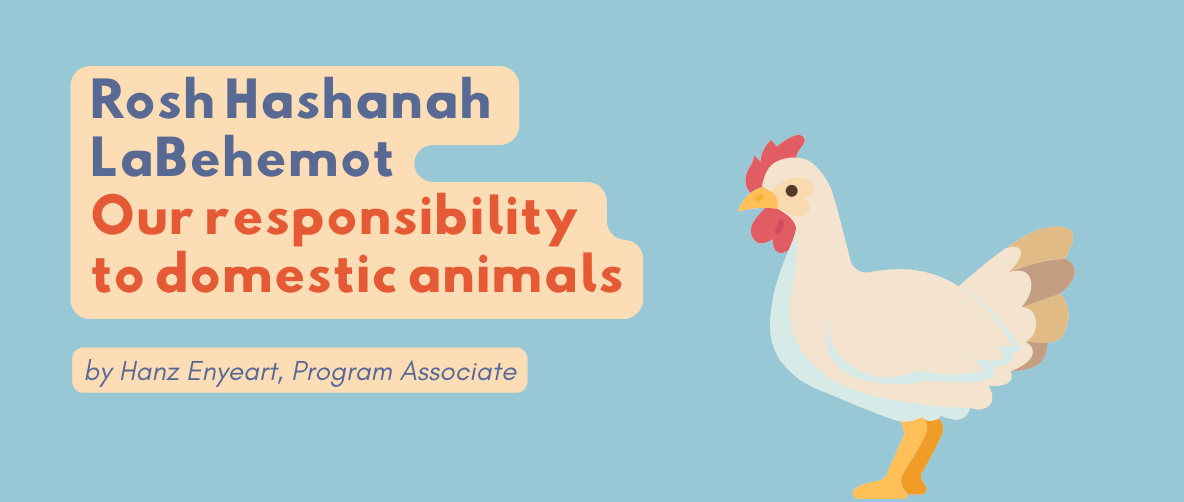



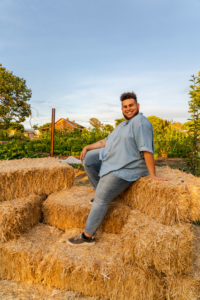 Black, Jewish and Queer. These three identities weave the fabric of who I am, but it took a long time to believe that they could exist together.
Black, Jewish and Queer. These three identities weave the fabric of who I am, but it took a long time to believe that they could exist together. Lee and Toni Leichtag established the Leichtag Foundation in 1991 following the sale of their business. Lee and Toni were lifelong entrepreneurs with a passion for innovation and for supporting talent. They believed that only with big risk comes big reward. Both born to families in poverty, Toni to a single mother, they strongly believed in helping those most in need and most vulnerable in our community. While they supported many causes, their strongest support was for young children and the elderly, two demographics who particularly lack voice in our society.
Lee and Toni Leichtag established the Leichtag Foundation in 1991 following the sale of their business. Lee and Toni were lifelong entrepreneurs with a passion for innovation and for supporting talent. They believed that only with big risk comes big reward. Both born to families in poverty, Toni to a single mother, they strongly believed in helping those most in need and most vulnerable in our community. While they supported many causes, their strongest support was for young children and the elderly, two demographics who particularly lack voice in our society. Lifelong Baltimoreans, Rabbi George and Alison Wielechowski and their sons, 11-year-old Lennon and 9-year-old Gideon, are more than pursuing the good life in Southern California. Having moved to San Diego more than three years ago, they are fulfilling a lifelong dream.
Lifelong Baltimoreans, Rabbi George and Alison Wielechowski and their sons, 11-year-old Lennon and 9-year-old Gideon, are more than pursuing the good life in Southern California. Having moved to San Diego more than three years ago, they are fulfilling a lifelong dream.
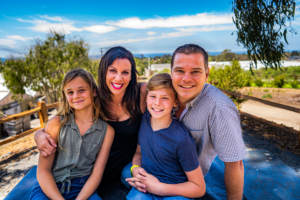
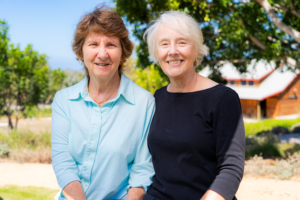



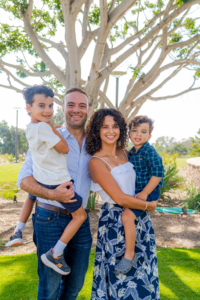
 You would think that as the executive director of San Diego LGBT Pride, Fernando Zweifach López Jr., who uses the pronoun they, has done all the coming out they possibly can. A queer, non-binary individual who has worked for many years on civil rights issues, López also speaks openly and often about their father’s family, Mexican-American migrant workers who tilled the fields of rural California.
You would think that as the executive director of San Diego LGBT Pride, Fernando Zweifach López Jr., who uses the pronoun they, has done all the coming out they possibly can. A queer, non-binary individual who has worked for many years on civil rights issues, López also speaks openly and often about their father’s family, Mexican-American migrant workers who tilled the fields of rural California. Stacie and Jeff Cook understand commitment. They live it.
Stacie and Jeff Cook understand commitment. They live it.
